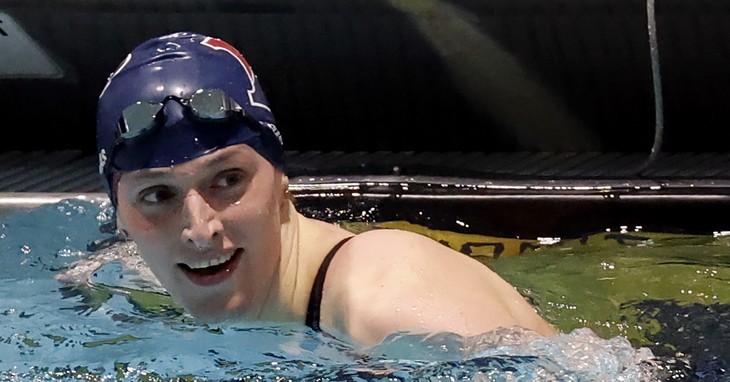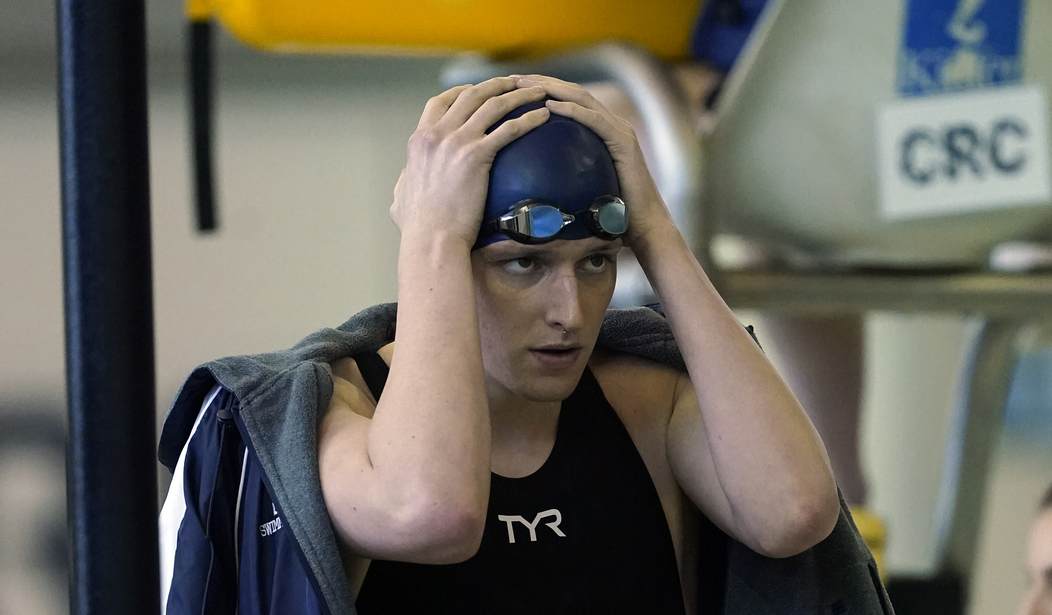Yesterday, Lia Thomas won an NCAA national championship in women’s swimming. Under normal circumstances, this receives little coverage, but Lia Thomas is a transgender athlete.
Specifically, Thomas is a biological, fully developed male who has spent at least a year (according to NCAA rules) on hormone therapy as part of his transition. The exact circumstances here are great cause for concern to many – the event was punctuated by protests from feminist groups and others who felt it was unfair for someone who is a fully-developed male to compete as a woman.
There are basic biological differences between developed men and developed women, and it gave Thomas a distinct advantage, one that threatens collegiate records and leaves the competition far behind.
The whole event has been a hotbed of controversy.
But Thomas’s triumph in Atlanta — indeed, her very presence at the swimming championships as a contender — came amid a far larger storm, particularly in statehouses and right-wing media, about sports participation by transgender girls and women. The issue, which on Thursday drew a handful of demonstrators to the Georgia Tech complex that hosted the championships, had long buffeted the college sports industry. But it intensified as Thomas posted times that left opponents far behind and put some collegiate records under new pressure.
Thomas has said little in public this season, her final collegiate campaign to cap a distinguished career that included runner-up finishes in several men’s freestyle races at the Ivy League championships in 2019, even as her story rocketed from the insular swimming community onto talk shows and social media.
On Thursday evening in Atlanta, she refused to participate in the news conference that the N.C.A.A. requires of its champions. The association said its swimming and diving committee would review the episode in the weeks ahead.
[…]
Through Nancy Hogshead-Makar, a lawyer who won three Olympic gold medals in swimming in the 1980s, more than a dozen members of Penn’s team sent an anonymous letter to the university and the Ivy League last month to complain that Thomas had “an unfair advantage over competition in the women’s category.” They cited her rapid ascension in the rankings, from high-quality conference swimmer to national title contender, and asserted that her victories and potential to break women’s records were “feats she could never have done as a male athlete.”
By then, though, the Ivy League had said it welcomed Thomas, who in 2019 came out to her team and began hormone replacement therapy, as a competitor in women’s swimming. (The Ivy League did not hold a 2020-21 season because of the coronavirus pandemic.)
There are women’s rights activists openly opposing this, and even more people who are quietly questioning just how fair this is. You’ll see more and more of it bubbling to the surface as more biological males transition over with an unfair advantage over biological women competing.
Virginia Tech swimmer competing in this year’s NCAA championship details how her teammate was brought to tears after her place in the finals was taken by Lia Thomas: pic.twitter.com/mow56mVp1W
— Sav (@RapidFire_Pod) March 17, 2022
This also comes amid a very trying few weeks in Florida. The controversy surrounding what Democrats and the media falsely dubbed the “Don’t Say Gay” bill was largely manufactured and not really indicative of what the general public feels about the issues involved there.
Florida’s law largely focuses on the idea that schools should not be able to insert sexuality and sexual identity into the curriculum of students five to eight years old. For that sin, LGBT activists, Democrats, and the media piled on, but polling on the subject shows that Americans are just fine with the idea of not teaching some of our youngest students about topics they can’t possibly comprehend.

More and more people are growing concerned with how aggressively transgender activists are pushing the issue on Americans who are skeptical of the social changes they seek. You have parents concerned with that level of activism in elementary school classrooms. You have athletes and women’s rights groups concerned with how it’s upending women’s sports.
What’s next? Middle and high school students.
With what kids are exposed to on social media, transgenderism is quite literally becoming a trend. You see more and more of it on popular apps (especially TikTok) and, as a result, more children are seeing it as the next trend they want to hop on. And for many students, it doesn’t stick. But you can be assured that there will be growing pressure on schools and school systems to start accepting it more and more, no matter the circumstances.
And there’s really no way of knowing if a student has a legitimate desire to transition or if they’re riding a social trend that they’ll eventually move on from (and the whole moving on thing happens a lot more than you might think). But it will all be treated as a very serious issue that schools need to allow greater acceptance on, and that will lead to a major increase of social problems in schools that they are currently not prepared to handle, much in the same way that the NCAA wasn’t really prepared to handle the trans athlete issue.
Obviously, the pushback to all this will be “Well we need to be prepared to handle it,” but the activism is pushing far ahead of the actual, physical capabilities to handle it. You don’t have clear procedures and resources available to those students. You just have “civil rights” mandates forced on schools and systems with very little guidance on how to accommodate, which is in turn being misconstrued as a civil rights violation. Meanwhile, these kids are caught in the crossfire. The athletes are caught in the crossfire.
This is the new normal.













Join the conversation as a VIP Member